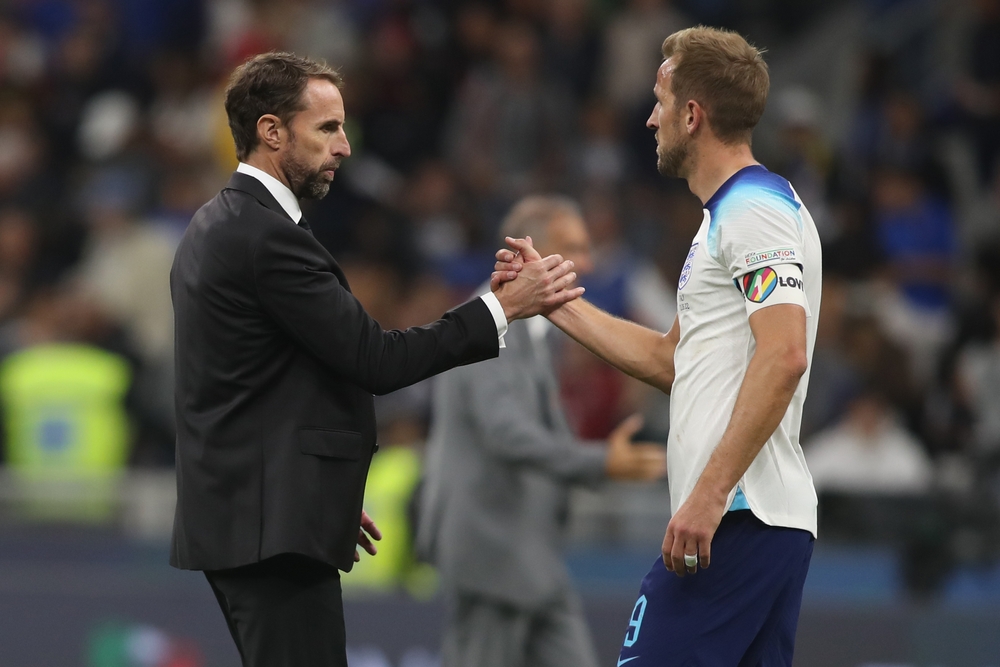As most of us are probably aware, the England men’s national football team gracefully bowed out of the 2022 World Cup last week. As a passionate football fan, I was upset. Not many times have I been able to say that an England team were better than the French on the night, but it was France’s stellar tournament experience that got the better of the young and inexperienced England side. I was upset because we don’t just have the footballing ability to win an international tournament, but since Southgate’s new leadership approach, the team spirit, cohesion and harmony to do so. That is why, despite facing a strong French side, we could and perhaps should have done better.
The dark side of the beautiful game
It is no secret that the English dressing room in previous years was a hostile and tense place to be. In the early 2000s, rivalries between domestic clubs were at an all-time high and this followed the players into the national side. Former England stars, Frank Lampard, Rio Ferdinand and Steven Gerrard, believe a lack of harmony, driven by domestic rivalry, actually held back England from achieving what they should have on the international stage. Is this something that might have been avoidable with the right person in charge?
Things change over time and football is a different place today than it was. Football hooliganism has in large parts petered out, there seems to be less hatred between rival fans and largely due to social media, players are much more in the public eye. However, I don’t believe for one second that rivalries on the pitch are not as intense as they were 20 years ago. The current sides of Manchester City and Liverpool are arguably the two of the greatest sides England has ever seen and for five seasons they have pushed each other to the limit, breaking most records along the way. Furthermore, despite not challenging as much for silverware as they did in the era of Lampard and Ferdinand, teams like Chelsea, Manchester United and Arsenal still play for pride above anything else.
What has changed within this current England side?
I think there are a number of reasons. Players now cannot get away with what they might have before. A small argument that may not have been spoken about the next day is now likely to be plastered all over Twitter, Facebook and YouTube. There are more players now that played together at youth level than in former England sides. For example, current England players Declan Rice of West Ham and Mason Mount of Chelsea are self-declared best friends; two clubs that historically have not been shy of expressing their disliking for one another.
Whatever reasons you may argue as to why the England team get on so well, they play second fiddle to the brilliant man management and leadership of Gareth Southgate. To start with, the atmosphere around the team camp outside of training is one that is relaxed and fun. The players are seen frequently in the swimming pool together, eating meals together and playing games together. A good work-life balance is important but especially on work ‘away days’, and this is the same for any team. Once the work is done, team building can begin. Instead of hurrying to your room for the rest of the evening, sharing a drink, a bit to eat and playing a game or two is a great way of breaking down barriers. The more comfortable and happier your team members are around one another, the better their relationships at work.
Again, let us compare this to previous years. Under Roy Hodgson, England’s manager between 2012 and 2016, it is well documented that players would disappear to their rooms with their PCs and PlayStations between games. Prior to that, England manager Fabio Capello imaged that players would read a book if bored. There is a reason the players of old England teams did not get along and it is because they never even attempted to bond outside of work. Current England player Eric Dier had this to say about the recent World Cup camp, ‘There are different things each tournament and this time it’s the wolf game which brings everyone together, breaks the ice.’ The wolf game is a role-playing card game that often up to 12 or 15 of the squad might sit around and play late into the evening. This is a culture that has been instilled and encouraged by Southgate and his team.
The importance of building relationships
Another thing Southgate has been praised for is his emotional intelligence during his tenure as England’s manager. He has made frequent trips to individual players outside of international service. For example, Southgate travelled to Dortmund, Germany, to spend time with Jude Bellingham, a precocious talent with the world at his feet. Furthermore, after England’s loss to Italy in last summer’s European Championship Final, Southgate took time to be with Marcus Rashford who was one of the trio of players at the centre of the racist backlash for the missed penalties. It is quite telling that both Jude Bellingham and Marcus Rashford were two of England’s brightest stars at this World Cup.
Southgate must take great credit for this. Not long ago I wrote a blog about relationship theory; a key leadership approach and Southgate’s leadership style is a good example of it. Relationship theory is when leaders base the focal point of their leadership style surrounding interactions, or relationships with others. They tend to act as mentors for their employees, working with them to meet their needs. By creating a positive work environment built upon personal relationships, a leader can encourage their employees to want to work for them. I have played football my entire life and still do. There is nothing worse than a mid-winter match in the pouring rain and freezing cold and your manager relentlessly barks orders at you. This does not make you want to perform for them.
This may have worked well in the hard and gritty footballing era of Brian Clough and Don Revie but football has changed and Southgate has changed with it. Southgate has an extraordinary skill to engage with generations younger than him because he believes in them, he treats them well and they respect him for backing them. Southgate’s investment in building up the softer skillset of his squad has paid dividends. There are many leadership theories as to which approach is the most successful but it could well prove to be the culmination of many. I have been critical of Southgate’s tactical nous but I cannot critique his ability to build relationships as a leader; this current England team really do want to perform for him. He has excelled at this.
Do nice guys always come last?
There are lessons to be taken from Gareth Southgate’s leadership. Despite exiting the last three international tournaments with no silverware, Southgate has done what many before him failed to do, made watching England enjoyable again. With current society as polarised as it ever has been, one thing that we have managed to share a collective identity over has been this current England team.
A staunch critic of Southgate will argue that although team cohesion is at an all-time high, he still hasn’t really achieved anything silverware-wise and that he is tactically inept when it comes to critical game-deciding moments. This is where the discussion surrounding leadership theories extends. Do the best leaders build a collective team identity but also achieve success? Can a team excel with just good team spirit or do they need to be led in the right direction tactically and operationally? Or were England and Southgate just unlucky?





